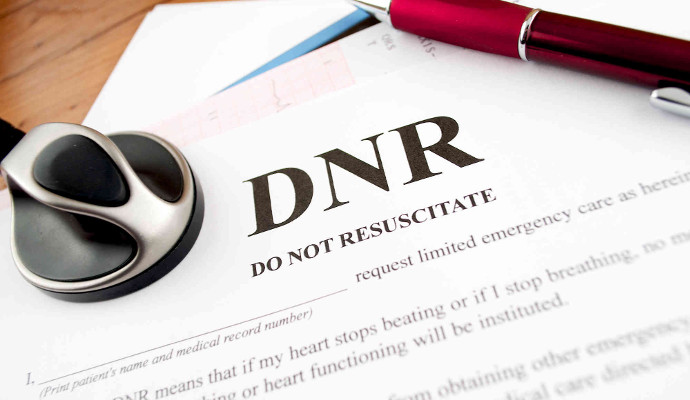Choosing hospice for your loved ones can be one of the toughest decisions of your life. Yet it is often considered as one of the most important decisions. While each hospice provider offers the best services to their patients, each provider differs from the other in some significant way. Therefore when choosing a hospice care provider, make sure to do your research and never settle for the first agency you meet.
However one of the most common questions people often have while looking for a hospice care agency is whether hospice and DNR status will cause conflict or not?
What Is DNR?
Let’s begin with explaining what DNR means.
A DNR or Do Not Resuscitate order is a medical order often written by a doctor. This order instructs the health care provider to not perform any cardiopulmonary resuscitation (CRP) on the patient if he stops breathing or the heart stops beating. As CRP is not performed on the patient, other measures that often follow CRP such as electric shock to the heart or artificial respirations will also be avoided.
What is Hospice Care?
Hospice care focuses on improving the quality of life of the patient. Hospice care service provider will do all they can not only to help the patient die peacefully but live happily and peacefully until he dies.
It is a special kind of care that provides compassionate care to patients who are experiencing advanced and life-limiting illnesses. While it accepts death as the final stage of life, it does not try to postpone or hasten death.
A team of professionals works with the patient to treat the symptoms of the disease rather than treating the disease itself. Hospice care brings in the quality of life and helps the patient make the best of each day during the last stages of advanced illness.
Does Hospice Require a DNR Order?
While a patient is not required to sign a DNR order before being admitted in a hospice, some hospice provider may ask you to sign the order. As long as the patient and his family understand that hospice offers palliative care rather than curative care, any Medicare-certified hospice will not ask the patient to sign the DNR order.
So while the hospice care service provider may ask you if you wish to be resuscitated if your heart stops or if you stop breathing, as a patient you are under any obligation to sign a DNR to receive hospice. According to hospice regulations, “Hospices cannot discriminate against patients because of any advance directive choices.”
Can It Be A Cause of Conflict?
What comes to your mind when you hear the word CRP? Aggressive external chest compression?Mouth-to-mouth resuscitation? With the advancement in medicines, it has become easier for physicians to rely on more aggressive options to bring back an individual to life.
A hospice patient is not required to sign a DNR order and can still receive CRP if they stop breathing. Therefore, hospice and DNR orders do not necessarily conflict.
In the last few months, hospice can help improve the quality of life of the patient. However, it can be confusing for loved ones to choosing the right facility for their aging loved ones.
Inspiration Hospice has been helping families and patients receive care and services when they need them the most.
Get The Care You Need. Call (385) 247-2020 To Know More About Our Hospice Care Services.

